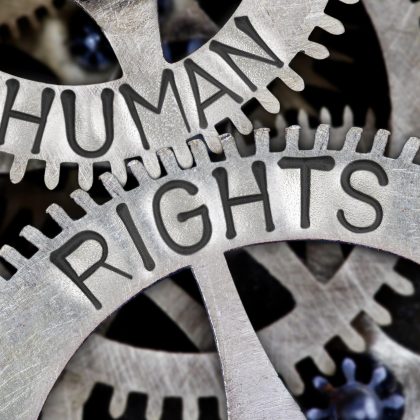Business and Human Rights in the Republic of Korea and Extraterritorial Jurisdiction
The National Human Rights Commission in the Republic of Korea recommended that the Korean government adopt a new National Action Plan on Business and Human Rights as part of its efforts to implement the UN Guiding Principles on Business and Human Rights in Korea on July 2016.[1] As a result, on August 9, 2018, the government adopted a chapter on business and human rights in its Human Rights National Action Plan, which focuses broadly on the state’s obligation to protect, the enterprise’s responsibility to respect, and access to remedy on business and human rights.[2] More specifically, the Korean government is provided with the task of institutionalizing human rights management and enhancing the effectiveness of grievance mechanisms.[3]
With regard to human rights management, one of the elements requires the government to prevent human rights abuses of local workers with regard to Korean companies operating overseas by establishing cooperation systems with relevant and foreign institutions, opening local briefing sessions on labor management for Korean companies going overseas, and publishing relevant data on labor management for all the countries in which it operates.[4] Such efforts are in align with recommendations provided by the UN Working Group on Business and Human Rights when they conducted a country visit to Korea in May 2016 which stated that “more attention needs to be given to how South Korean companies exercise human rights due diligence to avoid causing human rights harm outside South Korea.” [5] As such, the Korean government is making efforts to ensure that human rights management does not focus merely on companies operating in Korea but also abroad. Other tasks include enhancing the effectiveness of government-based remedy by improving the operation of the OECD National Contact Point (NCP) office in Korea through more diversification of its composition to guarantee its neutrality and independence, as well as educating Korean companies going overseas on human rights issues.[6] Although the government is not required to establish new laws on remedy or expanding the scope of extraterritorial jurisdiction for more judicial action, it is entrusted with the task of educating Korean companies operating or scheduled to operate overseas, establishing cooperation mechanisms with not only domestic institutions but also foreign institutions and ensuring that companies are providing periodic reports on their labor management abroad on a country-to-country basis. This is certainly a significant step towards implementing the UN Guiding Principles on Business and Human Rights and it is expected to raise more awareness among companies in Korea on the importance of protecting human rights in all of their operations.
Another significant progression that has been made in recent years is efforts by the Korean government to expand human rights management from state-owned companies to private companies. The government has been reluctant to regulate private companies and has rather focused on activities of state-owned companies for implementing human rights management. Therefore, in 2018, the National Human Rights Commission produced a human rights management manual for state-owned companies only.[7] Based on this manual, the National Human Rights Commission reported that 860 state-owned companies in Korea have adopted a human rights management system, while 114 have yet to adopt it.[8] But more recently, the Korean government has initiated efforts to expand this human rights management system to private companies as well.[9] The Ministry of Justice plans to publish a new set of guidelines for private companies soon, especially with mounting pressure from the public to promote human rights management in private companies after controversial incidents such as the ‘nut rage’ incident of Korean commercial flight, Korean Air, and the toxic humidifier disinfectant incident which was linked to death of more than 100 people in Korea. [10]
Despite all the progress that has been made, there is still room for improvement. For example, the government has not provided ways in which existing laws can be strengthened by imposing sanctions on companies in the event there is a serious human rights violation or whether other mechanisms can be established for victims to file legal remedies. Imposing liability on companies for human rights abuses will continue to be a challenge, particularly for extraterritorial acts since Korea does not exercise a broad scope of extraterritorial jurisdiction over overseas subsidiaries of Korean companies.[11] Even the Korea NCP office has previously decided that acts of Korean conglomerate, POSCO, in the Odisha province in India were not within their jurisdictional authority because it concerned the administrative and judicial acts of the provincial government.[12] Thus, the Korean NCP and the Korea government has a very strict standard for exercising jurisdictional authority over overseas acts and under such circumstances, it will be extremely difficult to sanction Korean companies for acts that take place abroad. Nonetheless, the Korean government is continuing its efforts to raise more awareness to ensure that companies in Korea have adequate human rights management in all of their global operations and are reporting periodically on their overseas labor management system. These measures are expected to influence Korean companies to become more aware of the human rights risks and take more action within their system to prevent such risks.
Professor Changrok Soh, Professor at Graduate School of International Studies, Korea University and also currently the president of the Human Asia and a member of the United Nations Human Rights Council Advisory Committee. After he graduated from the Department of International Relations at Seoul National University, he received his Ph.D. as well as MALD from the Fletcher School of Law and Diplomacy, Tufts University. He had also worked as a Research Associate at BRIE (Berkeley Roundtable on the International Economy), University of California, Berkeley; a Research Fellow at Pacific Basic Research Center, and J.F.Kennedy School of Government, Harvard University.
Seunghyun Nam, Research Professor at Graduate School of International Studies, Korea University. She graduated from the University of Pennsylvania Law School SJD program with a Fulbright scholarship. She also received a Magister Juris from Oxford University and a Master of Science in International Law from Korea University, where she also earned a Bachelor of Law.
[1] National Human Rights Commission of Korea, Recommendations for National Action Plans on Business and Human Rights (July, 2016).
[2] The 3rd National Action Plan (NAP) for the Promotion and Protection of Human Rights, Republic of Korea 2018-2022 (provisional translation provided by a Korean NGO, the Korea House for International Solidarity (KHIS), on Chapter 8 for business and human rights under the general National Action Plan which was adopted by the State Council on August 9, 2019), https://mk0globalnapshvllfq4.kinstacdn.com/wp-content/uploads/2017/11/3rd-hr-nap-of-republic-of-korea-2018-2022-chapter-8-bhr-only-by-khis-2018-11-24.pdf (accessed 27 March 2019).
[3] Ibid.
[4] Ibid, at 6.
[5] U.N. Human Rights Office of the High Commission, ‘UN Working Group on Business and Human Rights, Statement at the end of visit to the Republic of Korea by the United Nations Working Group on Business and Human Rights’ (June 1, 2016), Seoul, http://www.ohchr.org/EN/NewsEvents/Pages/DisplayNews.aspx?NewsID=20038&LangID=E (accessed 27 March 2019).
[6] Ibid, at 6-7.
[7] National Human Rights Commission of Korea, Human Rights Manual for State-owned companies (2018) (in Korean).
[8] ‘First step towards a domestic human rights management system.. Ministry of Justice, National Human Rights Commission establishing an implementation plan’, Hanguk Gyeonjae (25 March 2019) (첫발 내디딘 국내 인권경영 시스템.. 법무부, 인권위, 실행계획 세운다, 한국경제, https://www.hankyung.com/article/2019032531441.
[9] Ibid.
[10] Choe Sang-Hun, ‘Flight Attendant Kicked Off Korean Air Flight Alleges Cover-Up’, The New York Times (18 December 2014), https://www.nytimes.com/2014/12/19/world/asia/steward-kicked-off-korean-air-flight-accuses-airline-and-south-korea-of-attempting-cover-up.html?_r=0; ‘S Korean exec jailed over toxic humidifier disinfectant’, BBC News (6 January 6 2017), https://www.bbc.com/news/business-38526697 (accessed 27 March 2019).
[11] See generally Changrok Soh and Seunghyun Nam, Business and Human Rights Case Study of Korean Companies Operating Overseas: Challenges and a New National Action Plan, (2018) 40 Human Rights Quarterly 287.
[12] Final Statement, Netherlands National Contact Point for the OECD Guidelines for Multinational Enterprises on the Specific Instance notified by Lok Shakti Abhiyan, KTNC Watch, Fair Green and Global Alliance and Forum for Environment and Development concerning an alleged breach of the OECD Guidelines for Multinational Enterprises by the Dutch Pension Fund ABP and its Pension Administrator APG 7 (6 January 2015), http://www.final-statement-somo-bothends-apg-abp2.pdf.
To browse similar content, visit the Business and Human Rights Journal homepage.






